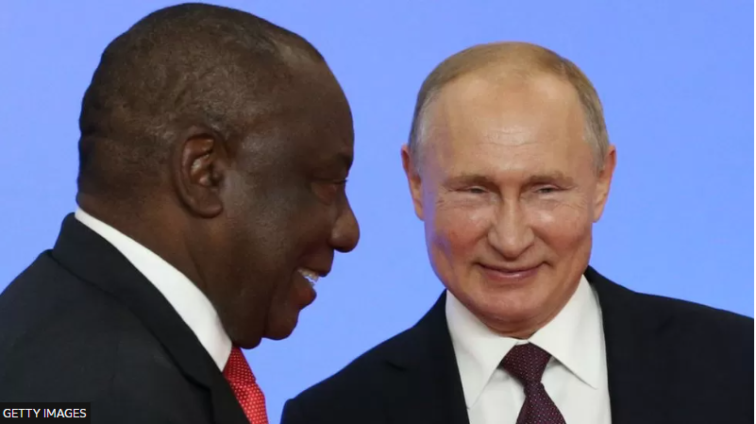Bridges are important for more than just connecting communities. Bridges are required for the formation and maintenance of strategic relationships to capture common interests and benefits. This is one of the primary reasons why a group of people, organisations, and governments have distinct strategies for establishing and maintaining relationships.
Countries from the Global North to the Global South are announcing the aims of partnerships and the measures to achieve them in their foreign policy declarations. When the occasion calls for it, presidents may also make spoken statements.
All of this is known to Moscow. That is why, for decades, it has articulated its foreign interactions and collaborations with relevant governments and enterprises per global best practices. As one of the sovereign centres of global development, it has played a unique historical role in shaping the modern system of international relations and eradicating the global system of colonialism.
Its mission is to maintain the global balance of power and establish a multipolar international system. Therefore, Russia is guided by the principles of sovereign equality and respect for each other's interests towards maintaining strategic stability and strengthening international peace and security.
The Russian Federation's strategic foreign policy aims to create an equitable and sustainable world order, maintain international peace and security, and promote peaceful coexistence and progressive development. It assists in developing comprehensive responses to common challenges and threats, promotes mutually beneficial cooperation with foreign states and their associations, counters anti-Russian activities, establishes good neighbourly relations with contiguous states, assists Russian allies and partners in promoting shared interests, and strengthens the capacity of multilateral regional associations and integration structures.
The Russian Federation also aims to consolidate its position in the world economy, ensure national development goals, and protect its interests in the world's oceans, space, and airspace. It also aims to enhance Russia's role in the global humanitarian space, preserve historical truth, and protect the rights, freedoms, and legitimate interests of Russian citizens and entities abroad. It also develops ties with its compatriots living abroad, ensuring their rights and cultural identity are protected. To fortify the underpinnings of the global financial system, Russia is also taking the lead in and starting regional financial projects.
Our analyst further examined the recently released Concept of the Foreign Policy of the Russian Federation intending to reveal the number of goals and means the country has for continents across the world as well as implications for building sustainable foreign relations. The policy document clearly states the establishment of an equitable and sustainable world order, the rule of law in international relations, and strengthening international peace and security as the key priorities of the Russian Federation.
In terms of goals, analysis reveals that the Russian Federation pursues more substantial international relations with nations in Eurasia, Europe, the United States, and other Anglo-Saxon states than with countries in Near Abroad, the Arctic, Asia-Pacific, Africa, Latin America and the Caribbean, and Antarctica. Our analyst points out that this does not imply that the Russian Federation does not seek to maintain relations with governments on these continents. According to our analyst, it just indicates the level of prioritizing present while developing goals.
Meanwhile, analysis suggests that the shortfall in goal setting seems to be complemented by the number of means allocated to some of the continents: Near Abroad, the Arctic, Asia-Pacific, Africa, Latin America and the Caribbean and Antarctica. For example, analysis reveals that Near Abroad, which comprises countries in the Commonwealth of Independent States, that is, Armenia, Azerbaijan, Belarus, Kazakhstan, Kyrgyzstan, Russia, Tajikistan, and Uzbekistan, has over 22% of the 40 means found in the policy document.
On the other hand, the Arctic, Asia-Pacific, Islamic World, Africa, Latin America and the Caribbean, which have fewer goals, were allocated a significant percentage of means. Our analyst observes that this might be linked with the Russian Federation’s recent focus on the continents in the context of the new geopolitical order system, multipolarity.

Source: The Concept of the Foreign Policy of the Russian Federation, 2023
Latest Stories
-
Abdallah Ali-Nakyea elevated to Associate Professor at UG School of Law
21 minutes -
Kick2build commissions 5 libraries in Klo Agogo, donates school supplies
27 minutes -
Slim and Fit Ghana donates to kids at Motherly Love Orphanage in Kwabenya
41 minutes -
We’ll be reorganising ourselves for the battles of tomorrow – NPP
45 minutes -
Ghanaian teacher Morkporkpor Fiador’s GWR Read-A-Thon attempt postponed
53 minutes -
Revocation of licences of UT, Capital banks were strict requirements from IMF – Dr. Addison
54 minutes -
MP Cynthia Morrison among 280 members expelled by Agona West NPP
1 hour -
NPP to set up committee to investigate 2024 election defeat – Stephen Ntim
1 hour -
New Juaben North NDC executives intercept 24k bags of fertiliser at Koforidua
2 hours -
Luigi Mangione pleads not guilty to murdering healthcare CEO
2 hours -
GhLA opens applications for 2nd Edition of Youth Advocacy Challenge
2 hours -
Remote Work in Africa; the Doballi solution
3 hours -
Stephen Ntim rallies NPP members after 2024 election loss
3 hours -
AratheJay ignites the night with mesmerising ‘Nimo Live’ debut concert
3 hours -
Diplomatic Corps in Ghana applaud Bawumia
3 hours

